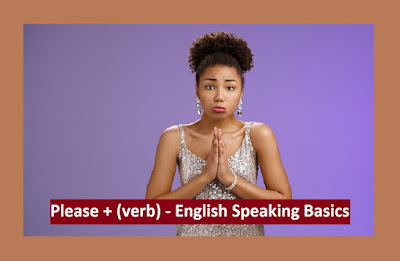Do you like-English Speaking Basics
With this question, you are asking someone what they prefer or enjoy.
 |
| Do you like - English Speaking Basics |
Read Also: English Grammar WhatsApp Group Link
english speaking, english speaking course, english speaking practice, learn english,speak english,English, learn english speaking,speaking english,spoken english,english basics, english conversation, speak english fluently, english lesson,basic english conversation,basic english,how to speak english fluently, how to speak english,speak english like an american,speak english like a native, speaking practice english, learn english speaking easily quickly
Here are some examples:
"Do you like travelling on a plane?"
"Do you like watching baseball on TV?"
"Do you like skiing or snowboarding?"
"Do you like going to bed early?"
"Do you like spending time with me?"
"Do you like repeating the class?"
"Do you like playing video games?"
"Do you like listening to music?"
"Do you like practising playing the piano?"
"Do you like jogging with me?"
Do you like black cats?
Do you like bowling?
Do you like bugs?
Do you like camping?
Do you like cities?
Do you like cooking?
Do you like dancing?
Do you like English?
Do you like French?
Do you like it?
Do you like Japanese food?
Do you like music?
Do you like rap?
Do you like robots?
Do you like running?
Do you like San Francisco?
Do you like snow?
Do you like surfing?
Do you like swimming?
Do you like tea or coffee?
Do you like tennis?
Do you like that?
Do you like the new school better?
Do you like this garden?
Do you like to sing?
Do you like to travel?
Do you like Tom?
Do you like trips?
Do you like walking?
Do you like white chocolate?
Do you like adventure stories?
Do you like ancient history?
Do you like any of these pictures?
Do you like apple pies?
Do you like apples or oranges?
Do you like apples?
Do you like baseball?
Do you like basketball?
Do you like blue cheese?
Do you like books written by Franz Kafka?
Do you like broccoli?
Do you like camomile tea?
Do you like cats?
Do you like China?
Do you like Chinese food?
Do you like chocolate milk?
Do you like coffee?
Do you like cupcakes?
Do you like dumplings?
Do you like eating fish?
Do you like facial hair on men?
Do you like fish?
Do you like fishing? Maybe we could get together sometime.
Do you like French cuisine?
Do you like French literature?
Do you like French opera?
Do you like French wine?
Do you like French wine?
Do you like French wines?
Do you like fruit salad?
Do you like giving haircuts?
Do you like golf?
Do you like green tea or black tea?
Do you like grits?
Do you like his songs?
Do you like IKEA furniture?
Do you like Indian food?
Do you like Indonesian food?
Do you like it then?
Do you like it when I do this?
Do you like it with mayonnaise?
Do you like Italian food?
Do you like Japanese or English?
Do you like Joseph for a name?
Do you like juice?
Do you like Korean food?
Do you like Mexican food?
Do you like Moscow?
Do you like movies?
Do you like Mozart?
Do you like Mozart's music?
Do you like mussels?
Do you like my friend?
Do you like my new haircut?
Do you like New York?
Do you like oranges?
Do you like our wedding cake?
Do you like oysters?
Do you like pineapple drinks?
Do you like playing sports?
Do you like playing volleyball?
Do you like pork loin?
Do you like pretzels?
Do you like rain?
Do you like ravioli?
Do you like Renaissance art?
Do you like root beer?
Do you like school?
Do you like sci-fi movies?
Do you like science fiction movies?
Read Also: Active Voice and Passive Voice Quiz
Best Learning English WhatsApp Groups List
Join English Chat Whatsapp Group Links
All India Jobs Notification Place
Join English Whatsapp group Links - 2021
Active ENGLISH WhatsApp Groups Links 2021
%20-%20English%20Speaking%20Basics%20-%20Part%20III.jpg)

 K.S.Chowdary
K.S.Chowdary%20-%20English%20Speaking%20Basics%20-%20Part%20III.jpg)



%20-%20English%20Speaking%20Basics.jpg)







%20-%20English%20Speaking%20Basics.jpg)
%20-%20English%20Speaking%20Basics%20-%20Part%20III.jpg)

